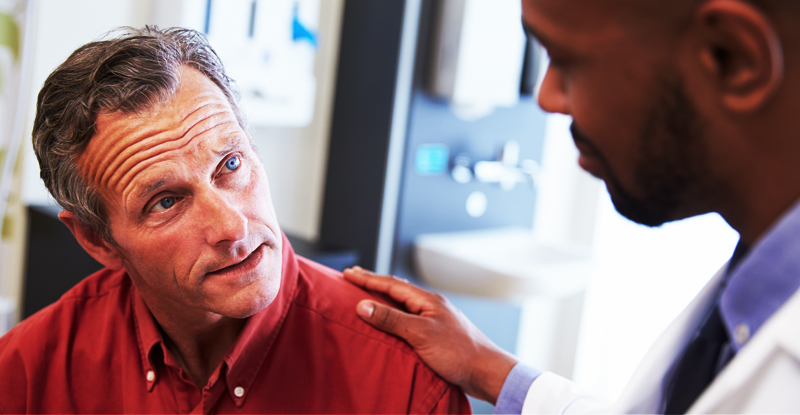What to Expect at a Prostate Exam
Many men avoid getting a prostate exam. It’s in a very private area, and it’s normal to have anxiety about the procedure. But problems with the prostate are common, so it’s an area that should not be ignored.
The prostate is prone to enlargement, which can cause health problems. This can lead to frequent, urgent urination, especially at night. The enlargement may or may not be related to prostate cancer.
I had my prostate examined for the first time at age 48 by my primary care provider. It was not painful and took seconds to complete. I suffered no serious side effects. Here’s what you need to know.
What is the prostate?
The prostate is a gland that men have. It is about the size and shape of a walnut. It is located between the testicles and the rectum.
When should I have a prostate exam?
That depends. There are many factors that could increase the risk of prostate cancer. Not everyone agrees on when you should have your prostate examined for the first time. Talk to your doctor about risk factors you may have. Prostate cancer is rare for men under 40, and risk starts to increase around age 50. African-American men, for unknown reasons, are more prone to prostate cancer and more aggressive types of prostate cancers. If you have a family history of prostate cancer, especially a brother or father, that is a risk factor to consider. If breast cancer runs in your family, especially a sister or mother, that may also put you at risk as there is a genetic link.
How is the prostate examined?
The first exam is usually a digital (or finger) exam. The doctor must insert a finger through the rectum and feel the prostate gland for any abnormal size or shape. The doctor will be wearing gloves, and the hand, finger, and rectum will be heavily lubricated.
Will it hurt?
If your prostate does not hurt now, it will not hurt during the exam. It will likely be uncomfortable, but it is all over very quickly. My first exam took a few seconds. It did not hurt at all, although it was uncomfortable and a little embarrassing. While the doctor “felt” my prostate, I had an intense feeling that I had to urinate that lasted less than a second. After that, I felt I should urinate, but it was not intense.
Is that it?
Usually. If your prostate is enlarged or has an unusual shape or texture, your doctor may wish to examine it further.
What are the next steps?
If you and your doctor agree that further examination is necessary, you may then have a Prostate Specific Antigen (PSA) blood test. Another possibility is an ultrasound exam.
What’s the bottom line?
My first prostate exam happened during a routine physical. Noting I was in my late forties and had not yet had a prostate exam, we agreed it was in my best interest to have the procedure. It was no big deal. Don’t ignore or avoid a routine prostate exam out of anxiety. If I can handle it, so can you.
References:
www.webmd.com/prostate-cancer/guide/prostate-cancer-digital-rectal-exam
www.webmd.com/prostate-cancer/tc/prostate-cancer-exams-and-tests
www.webmd.com/men/video/marks-prostate-exam
www.cancer.org/cancer/prostate-cancer/causes-risks-prevention/risk-factors.html
www.mayoclinic.org/diseases-conditions/prostate-cancer/basics/risk-factors/con-20029597
www.webmd.com/men/prostate-enlargement-bph/features/enlarged-prostate-bph-complex-problem#1




